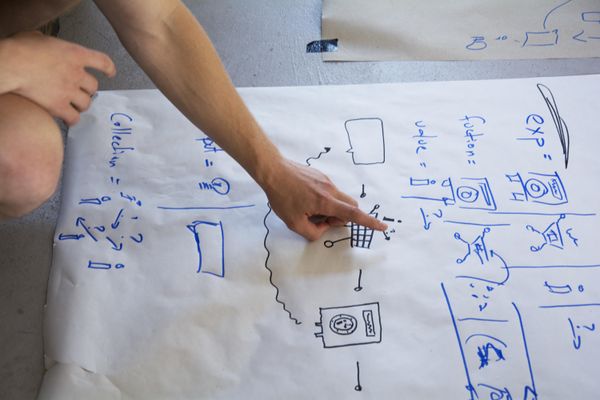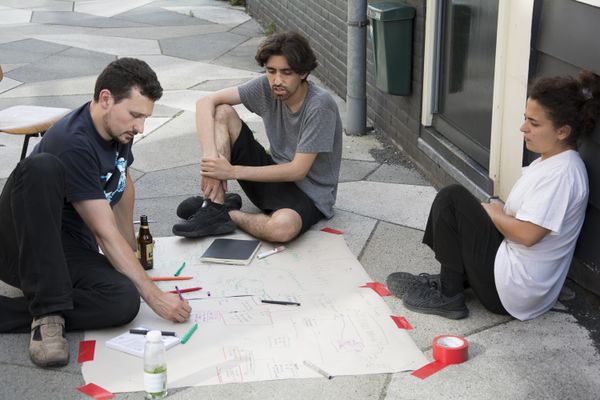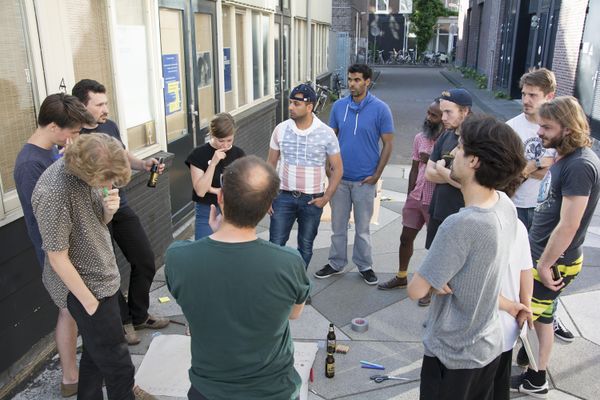Language Design: Difference between revisions
No edit summary |
No edit summary |
||
| Line 11: | Line 11: | ||
Workshop by Vadim Zaytsev. | Workshop by Vadim Zaytsev. | ||
In first part of the the workshop we were introduced in the ways humans have been talking to machines and an | In first part of the the workshop we were introduced in the ways humans have been talking to machines and an overview of[[Computer language history]] . | ||
Topics of discussion in the Language Design session were: | Topics of discussion in the Language Design session were: | ||
* Why do we use languages to communicate with computers? | * Why do we use languages to communicate with computers? | ||
| Line 20: | Line 20: | ||
* Are modern languages different from older languages? | * Are modern languages different from older languages? | ||
For the hands-on part of the workshop we designed our own languages in groups. | For the hands-on part of the workshop we designed our own languages in groups after the [[Computer language design schema]]. Our achievements were analysed and in general list some recent achievements in software language design, requirements, analysis, implementation, evolution and mapping. | ||
[[Pizza ordering language]] | [[Pizza ordering language]] | ||
Revision as of 17:24, 11 December 2015
Template:Events Workshop by Vadim Zaytsev.
In first part of the the workshop we were introduced in the ways humans have been talking to machines and an overview ofComputer language history . Topics of discussion in the Language Design session were:
- Why do we use languages to communicate with computers?
- What constitutes a computer language?
- What are these language used for?
- Why are people making new languages?
- What components can the language be decomposed to, and how are they related?
- Are modern languages different from older languages?
For the hands-on part of the workshop we designed our own languages in groups after the Computer language design schema. Our achievements were analysed and in general list some recent achievements in software language design, requirements, analysis, implementation, evolution and mapping.


